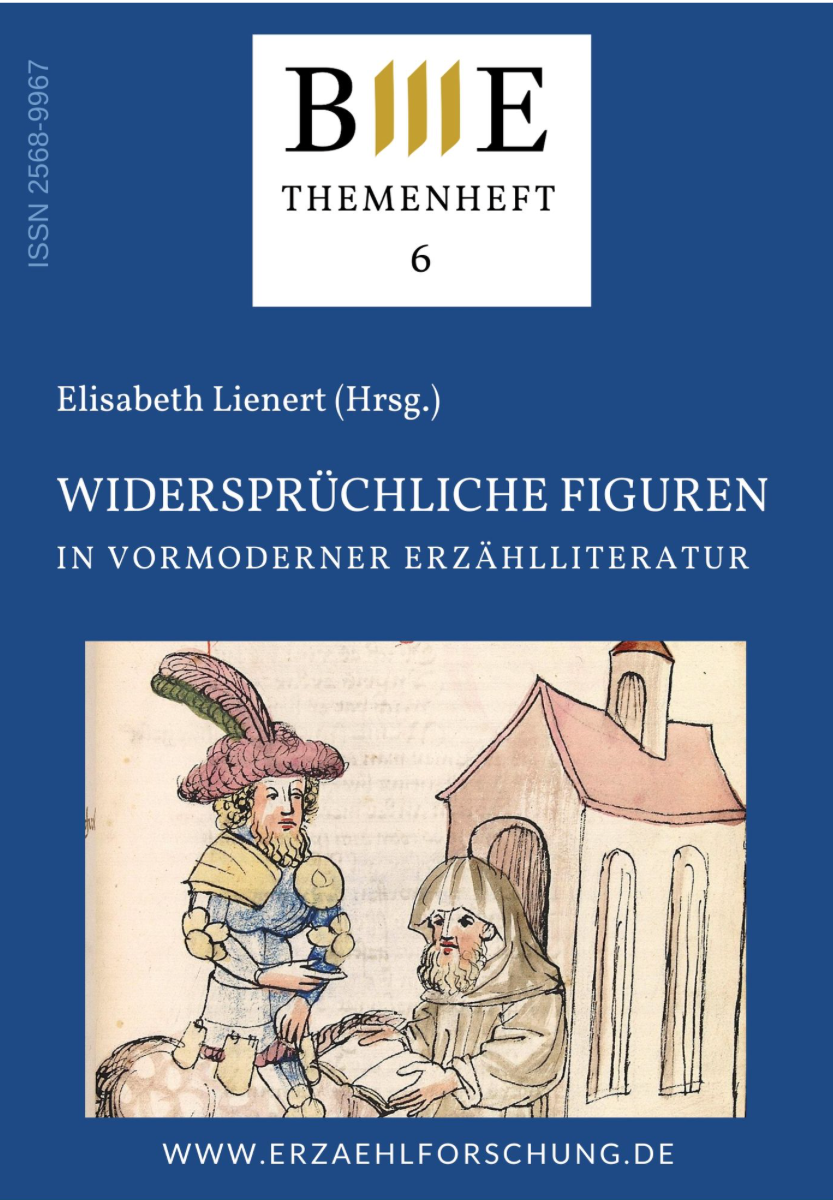
Using the examples of Gunther, Siegfried, Dietrich of Bern and Etzel in the ‘Nibelungenlied’, the lecture examines contradictions between royal rank and actual power to act, between the actions of rulers and the discourse of domination. They point to the genre-typical self-portrayal of the warrior nobility in the heroic epic and to the primacy of material history and the finality of the plot over the constitution of the characters, which in this respect is only ‘subordinately’ contradictory, but also to shifts in the discourse of rulership.
In Lienert, Elisabeth (Hrsg.), Widersprüchliche Figuren in vormoderner Erzählliteratur (BmE Themenheft 6), 105–128. Oldenburg: BIS-Verlag.
DOI: 10.25619/BmE2020395